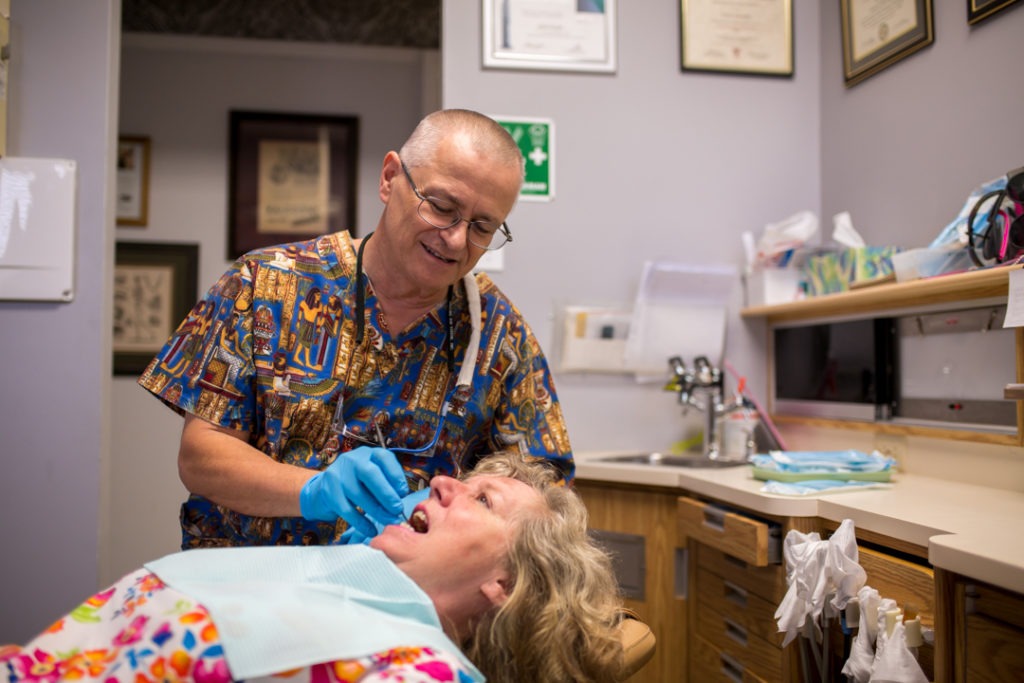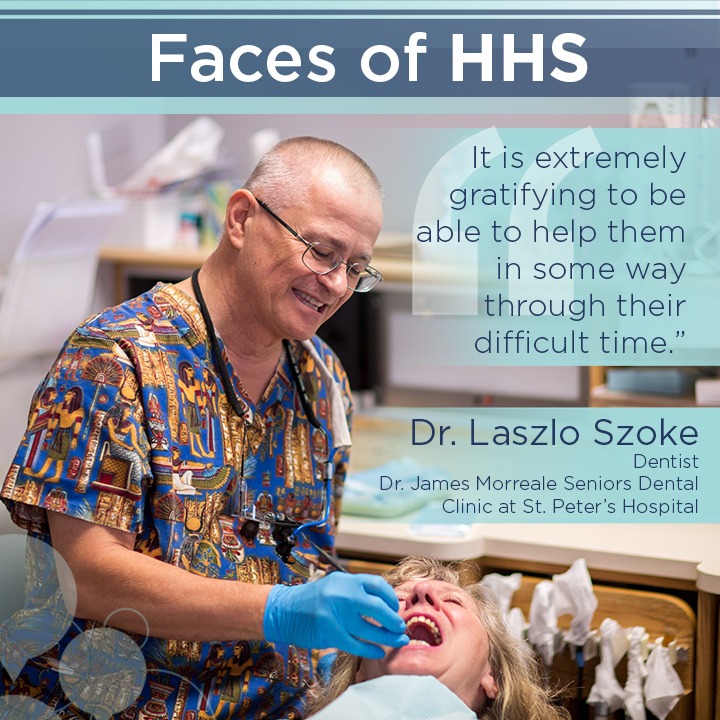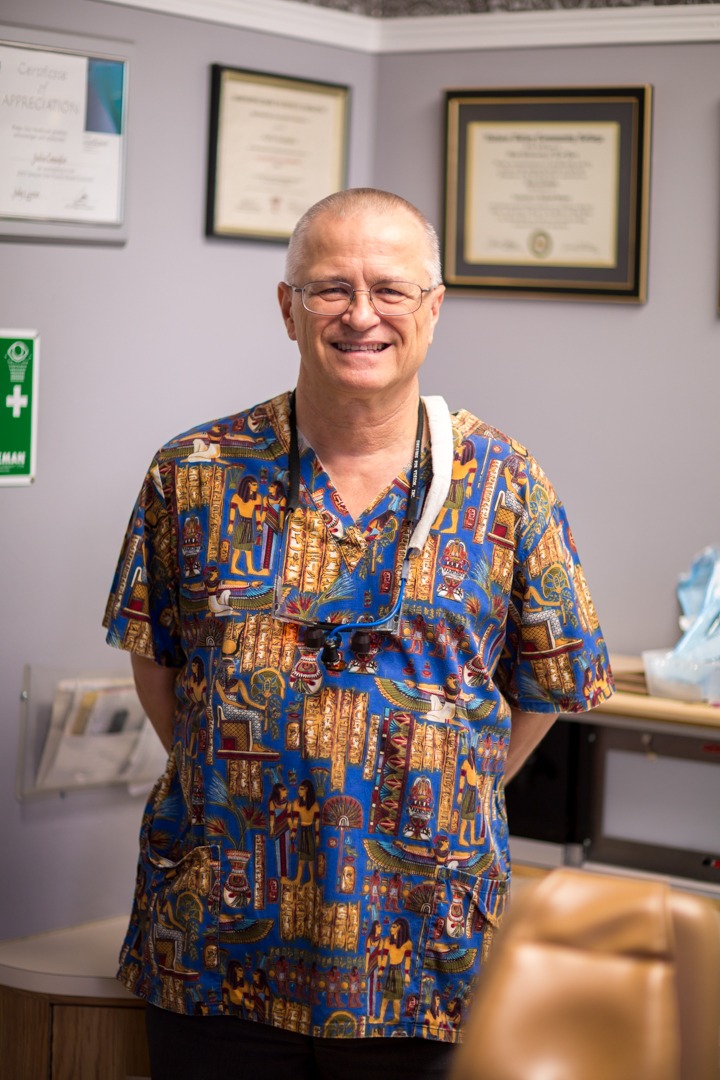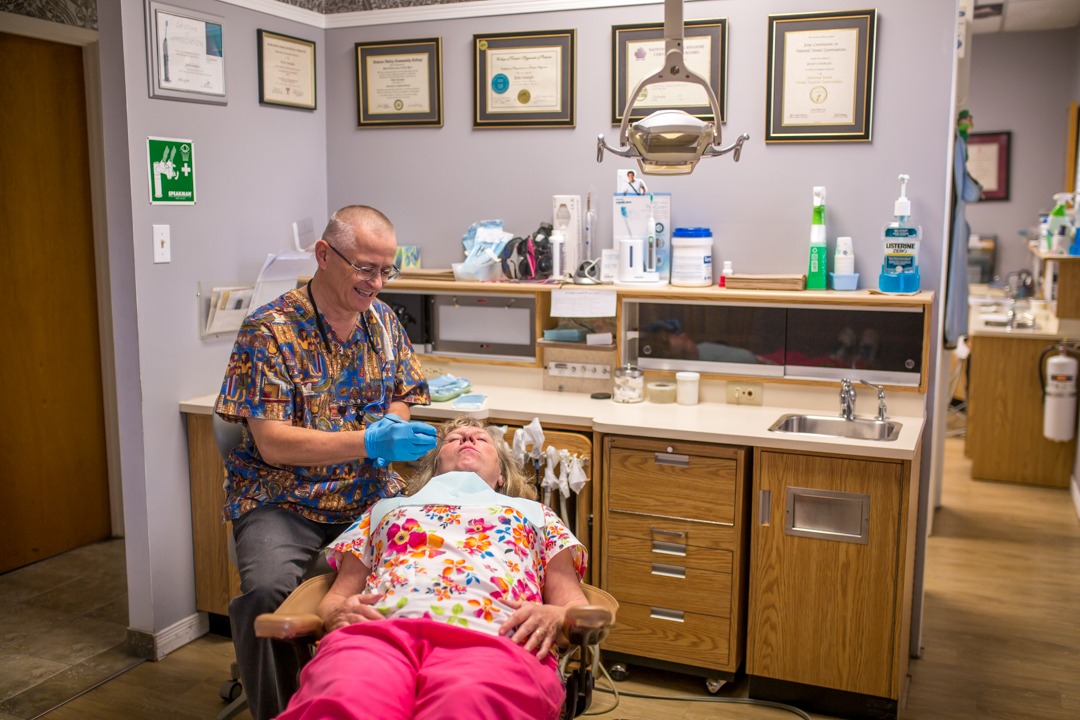
Introducing… a dentist
Dr. Laszlo Szoke is a dentist in the Dr. James Morreale Seniors Dental Clinic at St. Peter’s Hospital. He has worked at Hamilton Health Sciences for 11 years.
Tell us about your first day at HHS.
We felt very welcome at St. Peter’s from the beginning. I did not have hospital experience and after 25 years in solo practice, it was a bit of an adjustment to work at St. Peter’s.
What made you enter your field of work?
I became a dentist because it combined my interest in health care and my love of wood carving. A family friend helped me during my initial stages in setting up my practice, and when I graduated she called me to treat the residents at her nursing home.
What do you love most about your job?
We get to meet interesting people with diverse life stories. It seems that we meet people often close to the end of their lives, when they are very dependent on the people who care for their needs.
I was quite saddened as I read his obituary, as he was a true gentle giant, doing very valuable work in his working career.
I had a patient at my private office who came with a caregiver, but was very open about his wishes and wants. As he aged and his health deteriorated further, he came to the Dr. James Morreale Seniors Dental Cinlic at St. Peter’s. I also treated him at least once in his own home, as he could no longer travel.
I was quite saddened as I read his obituary, as he was a true gentle giant, doing very valuable work in his working career. I was sad I had only seen him in his declining years.
Some of our patients have come to us at a crossroad, either after being diagnosed with oral cancer, or having a dental problem that they can no longer cope with. It is extremely gratifying to be able to help them in some way through their difficult time.

Describe some of the unique challenges of your work.
Each patient at St. Peter’s and in the wider community is an individual. Their stories, their backgrounds, their medical and dental experiences, their mental and physical capabilities, their level of co-operation are all unique. We must assess their dental needs in light of all these factors. We must make very quick decisions about their care, and try to find the right tone with all of them.
In our clinic we have the usual hospital lift to get patients out of their wheelchairs. We also have a wheelchair tilt, that we can back patients in, staying in their wheelchairs, and tip the whole wheelchair back, patient included, so we can see into their mouth clearly. It avoids us having to bend over, especially as most of the patients tend to lean forward anyway. It seems that a lot of the patients are quite at home in their wheelchairs, their cocoon as it were, and we find it a lot easier to get them to co-operate still in their own wheelchair. It is also a lot faster to tip, rather than lift the patient out of their wheelchair.
…we find it a lot easier to get them to co-operate still in their own wheelchair. It is also a lot faster to tip, rather than lift the patient out of their wheelchair.
All our patients come with an unique mouth, with many variables, including physical and mental restrictions and financial resources. We have to deal with these situations and always try to do things in the patients best interest.
All days are challenging: different patients, different wheelchairs and different problems.
Do you have a confidant at HHS?
Dr. Richard Seeley, chief of Complex Care/Aging & Palliative Care at St. Peter’s is someone I turn to. Dr. Seeley has supported the Seniors Dental Clinic since the very beginning. He has been a mentor, giving me advice, support and encouragement.
What do you wish you had more time for at work?
I wish we had more time to spend with the patients, to hear their life experiences.

What do you do after work to unwind? I make my own wine and beer. I try to ride my road bike in good weather. On weekends, I like to spend time at my cottage.
Tell us about your most gratifying experience at HHS.
Two of our patients recently wrote a letter of recognition of the efforts of all our staff to the President & CEO of HHS, Rob MacIsaac.
When you tell people what you do, how do they usually react?
Most people are unaware of the great need for dental care in the elderly. Attitudes are changing regarding the importance of keeping one’s own teeth. In the past 50 years, we have seen a great increase in the number of seniors keeping many, if not all, of their own teeth.
Some of our patients have had a great deal of expensive dental treatment that all of us would like to maintain. Others have had less work done because of financial reasons, and now need more care to ensure that they can socialize, smile and eat.
It often seems that many other things take precedence over dental treatment, and this is an attitude that needs to change, on an individual level and on a societal level. We need to help everyone maintain a healthy set of teeth to help improve their overall health. The deterioration of oral health can have profound effects on overall health.
What are your short and long term career goals?
Close to the end of my career, I am finding different directions to further the cause of geriatric dentistry. Through St. Peter’s and the Ontario Dental Association, I want to continue to spread awareness of the need for daily mouth care and regular dental care for seniors, especially those in long term care. More people are keeping their teeth in their golden years and neglect of oral health is a hidden problem.

